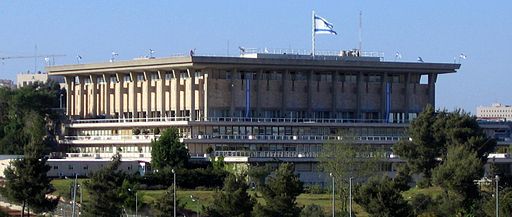Guest Columns
How to be a great Prime Minister of Israel

You, sir, have become the Prime Minister of Israel. Your party won only 27 seats in the February 2012, less than one-fourth of the Knesset’s 120-membership.
A coalition Prime Minister…
Moreover, your party received only 21.61 percent of the 3,373,490 valid ballots cast in the aforesaid election that made you Israel’s Prime Minister. Hence, like all other Israeli prime ministers since 1948, you had to form a coalition government. Your cabinet therefore includes the leaders of rival political parties, perhaps one left-leaning secular party, one right-leaning secular party, and two ultra-religious parties.
As a consequence, of this multiparty system of government, you will not be able to implement your own party’s program. You will have to more or less accommodate the diverse programs of each of the other four parties included in your cabinet. Failure to do so will lead to a cabinet crisis and perhaps the dissolution of your government.
It follows, Mr. Prime Minister, that the domestic and foreign policies of your Government will lack political solidity and ideological coherence. You will thus find it extremely difficult to pursue a consistent, resolute, and long-range national strategy. Indeed, upon entering office and consulting your cabinet on national issues, you will discover that one or two of your cabinet ministers will advocate, while others will oppose, a preemptive attack against Iran’s nuclear development program. The result? Political paralysis and public confusion.
If this were not enough, one of your cabinet ministers will advocate, while another will oppose, the evacuation of certain Jewish communities in Judea and Samaria.
…with everyone scrambling for a share
Leaving other issues aside, let me inform you, Mr. Prime Minister, that all your coalition partners will compete for a larger share of the national budget, regardless of the external threat confronting the nation. You will thus be hard-pressed to exercise leadership. Indeed, your government will lack moral clarity and a vivid sense of national purpose. Nor is this all.
You cannot possibly satisfy the demands of all your coalition partners. So you will have an abundance of critics, some in your own party. Holding your coalition together will sap your energies and divert your attention from foreign dangers. This of course will encourage Israel’s enemies and confuse Israel’s friends. Mr. Prime Minister, I don’t envy you.
A statesman’s choice
Still, you have a choice. You can sacrifice your intellectual integrity and doggedly perpetuate this inept and faction-ridden political system. Alternatively, you can stand tall and propose serious structural reform. This will require you to persuade your party to jettison the obsolete and disastrous system of multiparty government. You must advocate, in its place, a Presidential system of government, but one that separates the Executive from the Legislature. In other words, Mr. Prime Minister, you will have to persuade your party to advocate a Unitary Executive in contradistinction to the Plural Executive resulting from multiparty cabinet government.
To anticipate opposition, you should emphasize the fact that Israel has never had a genuine system of institutional checks and balances. This would require separation of powers with a strong Legislature and an energetic Executive. To achieve a strong Legislature, its members will have to be personally and directly elected by the people in geographic constituencies. That is the only practical way to cement the bond between Representatives and the people on the one hand, and ensure political accountability on the other.
Of course, much more must be done to establish a solid, well-balanced, and efficient system of governance. There are diverse kinds of Presidential systems as well as different ways of electing members of the Legislature; and I have said nothing about the despotic nature of Israel’s judicial branch of government. Nor have I shown you how to garner public support by relating these reforms to bread-and-butter issues such as security, education, health, welfare, and civic virtue. But if you want to go down in history as Israel’s greatest Prime Minister, follow this path. ☼
-

 Education3 days ago
Education3 days ago‘Grading for Equity’: Promoting Students by Banning Grades of Zero and Leaving No Class Cut-Ups Behind
-

 Civilization5 days ago
Civilization5 days agoEarth Day Should Celebrate U.S. Progress & Innovation
-

 Family2 days ago
Family2 days agoIdaho defends against abortion mandate
-

 Civilization4 days ago
Civilization4 days agoNewsom plays silly abortion politics
-

 Constitution1 day ago
Constitution1 day agoPresidential immunity question goes to SCOTUS
-

 Education5 days ago
Education5 days agoThe Intifada Comes to America. Now What?
-

 Civilization5 days ago
Civilization5 days agoEarth Day – part of cultural Marxism
-

 Civilization4 days ago
Civilization4 days agoWaste of the Day: China Still Owes Over $1 Trillion to American Bondholders


Many people turn their backs on great leaders. They prefer someone is looks good, smells good, and does not do good. About half of our population are like that. Thank goodness she was not elected.
Bennie Sue West liked this on Facebook.